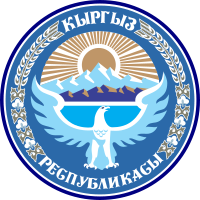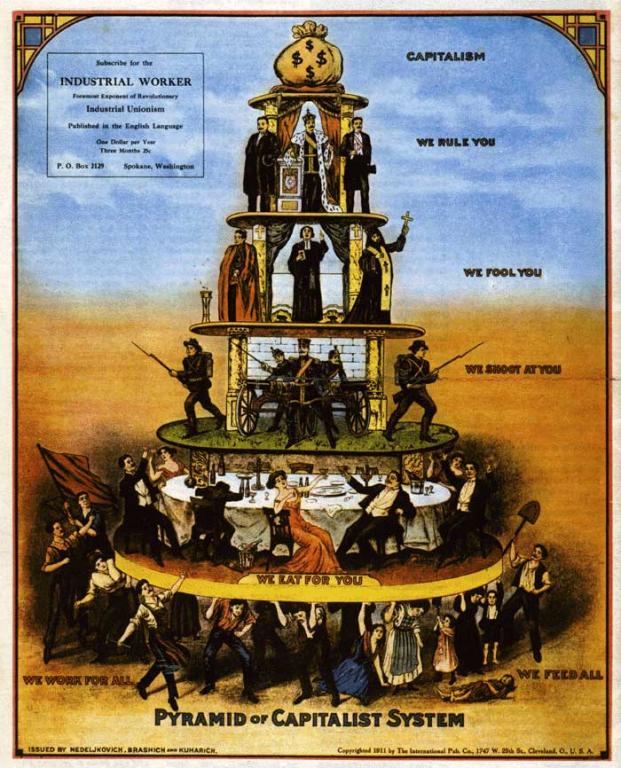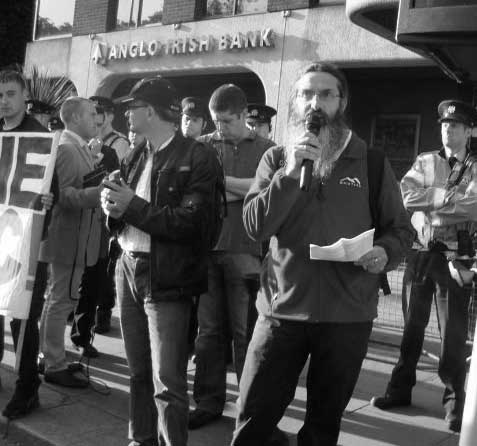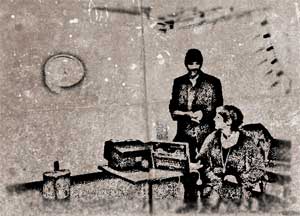Over 30 years of anarchist writing from Ireland listed under hundreds of topics
Analysis
Kyrgyzstan: Ethnic Violence or Political Violence
 The current violence errupting in the southern region of Kyrgyzstan is deeply troubling.
The current violence errupting in the southern region of Kyrgyzstan is deeply troubling.
If we are to go by the news reports given by the BBC, the violence is the culmination of long standing ethnic tensions. If we are to believe the Economist's recent article "Stalin's Harvest" we are seeing the inevitable fruits of Stalin's labour.
According to The Economist the ethnic violence is to be attributed to Stalin based on his inefficiency in drawing borders. Any ethno-geographer of the region would acknowledge that drawing effective borders, even if based on language groupings - is effectively impossible for Central Asia as populations are organised as consistently by elevation as by region. Uzbeks typically being in more sedentary populations at lower elevations, while the Kyrgyz historically lived in pastoral highlands. When ethnicity is brought into the equation things become even more complex. The result is a maze of populations where borders are abitrary by necessity.
Anarchism and The State
 The state is a central concept in the political philosophy of Anarchism. Anarchism is often defined as being an anti-state ideology. While this is sometimes a useful way to distinguish anarchists from other state socialists it also leads to a fair bit of confusion. We will look at the source of this confusion with the aim of showing that anarchism is in its essence opposed to rulers and is not a naive or idealistic form of anti-statism.
The state is a central concept in the political philosophy of Anarchism. Anarchism is often defined as being an anti-state ideology. While this is sometimes a useful way to distinguish anarchists from other state socialists it also leads to a fair bit of confusion. We will look at the source of this confusion with the aim of showing that anarchism is in its essence opposed to rulers and is not a naive or idealistic form of anti-statism.
Israeli Apartheid, BDS and Grassroots Resistance in Palestine - Audio from the Anarchist Bookfair
 This is the recording of the 'Israeli Apartheid, BDS and Grassroots Resistance in Palestine' from the 2010 anarchist bookfair. The speaker is Freda Hughes from the Ireland Palestine Solidarity Campaign. Topics covered in the one hour audio include the apartheid wall and settlements, experiences of the occupied territories, popular committees and Bi'lin, the cage protest and other direct actions, how Israeli activists argue for the boycott, Zionism, the freedom flotilla, Boycott, Divestment and Sanctions.
This is the recording of the 'Israeli Apartheid, BDS and Grassroots Resistance in Palestine' from the 2010 anarchist bookfair. The speaker is Freda Hughes from the Ireland Palestine Solidarity Campaign. Topics covered in the one hour audio include the apartheid wall and settlements, experiences of the occupied territories, popular committees and Bi'lin, the cage protest and other direct actions, how Israeli activists argue for the boycott, Zionism, the freedom flotilla, Boycott, Divestment and Sanctions.
Research papers on how the media covers protests
This collection of articles looks at how the media try to discredit protesters in relation to Ireland, London and the US. They were mentioned by Barry Finnegan on Radio Solidarity Show 4.
A Turkish anarchist reacts to the attack on the Mavi Marmara
Israel's attack on the Mavi Marmara, Turkish Flotilla of IHH (Humanitarian Relief Foundation) this morning struck a very dangerous cord with Turks of all sides, it also received the mixed reaction of a very divided and confused society . Turkey has had a love and hate relationship with Israel from the beginning, being one of the first states to recognize the State of Israel.There is a considerable amount of USA/CIA backed liberal opposition to Prime Minister Recep Tayyip Erdoğan's and his party AKP's repositioning of Turkish foreign policy from being "the only friend of a loner aggressive child in the class" to being a friend of Syria and Iran. This reaction takes place despite the obvious backing of his party by the USA in Turkey. Similar opposition has been expressed about Erdoğan and Brazilian President Lula's deal/ mediation with Iran to nuclear fuel swap deal last week.
'Time to make the wealthy pay' - speech by Gregor Kerr at Anti Capitalist Bloc protest
 We are here tonight outside Anglo Irish Bank to deliver a strong and clear message to the cabal of bankers, speculators and developers and their political friends who have brought this country to the brink of economic ruin. That message as I said is very simple and very straightforward – ‘They didn’t share the wealth, We aren’t going to share the pain. Make the wealthy pay’.
We are here tonight outside Anglo Irish Bank to deliver a strong and clear message to the cabal of bankers, speculators and developers and their political friends who have brought this country to the brink of economic ruin. That message as I said is very simple and very straightforward – ‘They didn’t share the wealth, We aren’t going to share the pain. Make the wealthy pay’.
The unions after the celtic tiger
 A rather strange figure is moving to centre stage in Irish politics, that of the trade unions - absent from mass struggles until recently and weakened over the decades of social partnership, they are now the only possible source of a movement that can confront attemps to transfer the cost of the recession to working people. This statement does not come with out some qualms. Already this year we’ve seen the union movement back away from its role in galvanizing its members in the run up to planned day of action on March 30th when resistance was taking shape among the public sector unions.
A rather strange figure is moving to centre stage in Irish politics, that of the trade unions - absent from mass struggles until recently and weakened over the decades of social partnership, they are now the only possible source of a movement that can confront attemps to transfer the cost of the recession to working people. This statement does not come with out some qualms. Already this year we’ve seen the union movement back away from its role in galvanizing its members in the run up to planned day of action on March 30th when resistance was taking shape among the public sector unions.
Teachers, the crisis and the wolves going after Greece
Brian Mooney used his regular column in the 'Education Today' section of the 'Irish Times to tell teachers why should vote yes to the public sector agreement. This is a response to his argument by teacher and WSM member Gregor Kerr submitted as a letter to the irish Times.
IT workers and struggles in work over time - 3rd Rethinking Revolution discussion
 In this audio download from the third of the Rethinking Revolution sessions Aileen O'Carroll draws on the stories and diaries of those working in IT company’s to talk about the secrets and contradictions of working in a global industry. The myth is that IT workers happily work a 60 hour week but like workplaces of a previous era, there is a struggle over the nature of work and the length of working time within our lives. The left tends to focus on the formal visible struggles conducted through trade unions. What can this other level of often individualised struggle teach us in the fight for a new world?
In this audio download from the third of the Rethinking Revolution sessions Aileen O'Carroll draws on the stories and diaries of those working in IT company’s to talk about the secrets and contradictions of working in a global industry. The myth is that IT workers happily work a 60 hour week but like workplaces of a previous era, there is a struggle over the nature of work and the length of working time within our lives. The left tends to focus on the formal visible struggles conducted through trade unions. What can this other level of often individualised struggle teach us in the fight for a new world?
International Solidarity with the Greek workers' struggle!
The Greek working class is angry, and with good reason, with the attempt to load responsibility for the bankruptcy of the Greek State onto their shoulders. We maintain instead that it is the international financial institutions and the European Union who are responsible. The financial institutions have plunged the world, and Greece in particular, into an economic and social crisis of historical proportions, forcing countries into debt, and now these same institutions are complaining that certain States risk not being able to repay their debts. We denounce this hypocrisy and say that even if Greece - and all the other countries - can repay the debt, they should not do so: it is up to those responsible for the crisis - the financial institutions, not the - to pay for the damage caused by this crisis. The Greek workers are right to refuse to pay back their country's debt. We refuse to pay for their crisis!

